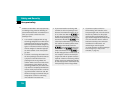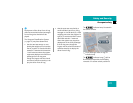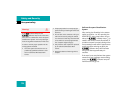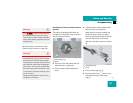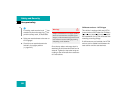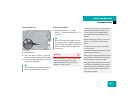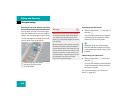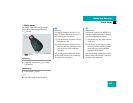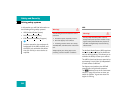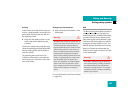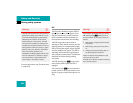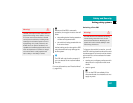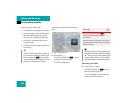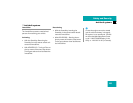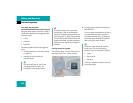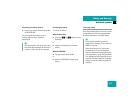
84
Safety and Security
Driving safety systems
In this section you will find information on
the following driving safety systems:
ț ABS (Antilock Brake System)
ț BAS (Brake Assist System)
ț ESP (Electronic Stability Program)
ABS
The A
ntilock Brake System (ABS) regulates
the brake pressure so that the wheels do
not lock during braking. This allows you to
maintain the ability to steer your vehicle.
The ABS is functional above a speed of ap-
proximately 5 mph (8 km/h) independent
of road surface conditions.
On slippery road surfaces, the ABS will
respond even to light brake pressure.
The - indicator lamp in the instrument
cluster (
୴ page 24) comes on when you
switch on ignition. It goes out when the
engine is running.
i
In winter operation, the maximum ef-
fectiveness of the ABS, the BAS, and
the ESP is only achieved with winter
tires (M+S tires) or snow chains as
required.
Warning! G
The following factors increase the risk of
accidents:
ț Excessive speed, especially in turns
ț Wet and slippery road surfaces
ț Following another vehicle too closely
The ABS, BAS, and ESP cannot reduce this
risk.
Always adjust your driving style to the
prevailing road and weather conditions.
Warning! G
Do not pump the brake pedal. Use firm,
steady brake pedal pressure instead. Pump-
ing the brake pedal defeats the purpose of
the ABS and significantly reduces braking
effectiveness.



